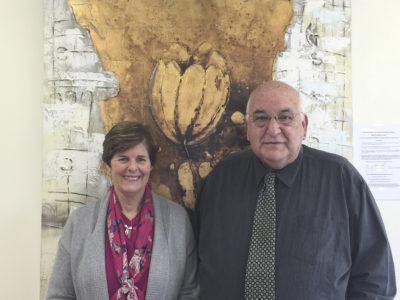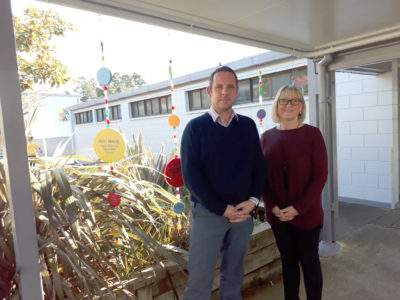Principals of local primary schools are deeply concerned about the crisis of teacher shortage and the increasing strain on teachers.
Consider this – a student gets into a wild rage in a classroom and starts throwing everything around including books and a pair of scissors. He starts kicking chairs and sends a desk flying across the room. The rest of the children watch, terrified. The teacher quickly evacuates the class to keep other children safe.
The student ends up smashing up the entire classroom. The teacher is stressed out by the disruptive behaviour. She can’t cope with it anymore.
In another classroom, there is a huge gap between the students with high needs in a class. There is a mix of students with a range of disabilities from speech problems to auditory processing difficulties, epilepsy and a couple of children on the autistic spectrum disorder. They all need special attention.
Admitting that teachers are finding it extremely hard to cope with the stress of increasing special needs students filling up the classrooms, Alan McIntyre – principal of one of the biggest primary schools in Auckland with a roll of 800 students, says teachers are beginning to collapse under the strain.
Getting relief teachers is a major issue.
With fewer teachers getting into the profession and the more experienced ones retiring, there is an ever-widening chasm. “There are no teachers applying for ae job,” says Mr McIntyre.

His deputy principal at Owairoa Primary, Christine Bull, says that equally stressful is the responsibility of being a Special Education Needs Coordinator (SENCO). It gives her very little time to complete other aspects of her job. She ends up spending all her time trying to ensure that children with special educational needs and disabilities within the school receive the support they need and deserve.
“Our school is now employing 12 teacher aides, paid from locally-raised funds, to assist in classes,” says Ms Bull.
“I have to meet up with the families and try to figure out what the real problem is and then connect them to the special agencies for help. It could be that the parents have separated and the child’s routine is disturbed because he is living in more than one home. Or that the parent has major family/health issues and is more dependent on the school to look after the child. There are so many other issues to be considered,” she says.
“The largest growing problem for children in all schools is the rising anxiety levels and it’s “a trend that is growing with children becoming distraught and anxious”.
There is a great deal of time involved in having meetings and recording all the data, she says. “We often have to play counsellor, which is something we are not really trained for.”
Leyette Callister, principal of Howick Primary, is equally concerned about the under-resourcing of schools.

She says that while inclusion is good, there is a point where the Ministry of Education needs to tell the parents that they need to put their child in a special needs environment.
“We have a policy of inclusion and catering to every child’s needs but it gets to a ridiculous stage because of being under-resourced. We just don’t have enough teacher aides. It’s important to understand that while we really enjoy having your child at school, we also have a responsibility of keeping other children safe.”
A case in point is an autistic child at school. “The child couldn’t sit still and would keep circling around the class which was very disconcerting for the teacher and students. There were times she would get so agitated she’d snap a pencil and start chewing on it. It was inappropriate behaviour and, unfortunately, the mother wasn’t willing to work with us.
“Another child with Down syndrome once ran away from school. Fortunately the child was found. The Ministry of Education then fenced the property around the classroom with a patch of green.”
She says that additional resourcing is needed to help senior staff as teachers are beginning to say `we are not going to deal with this’.
“There is just not enough money to run our schools,” she says.
“A lot of experienced teachers have moved house out of Auckland and for younger teachers who are just learning the ropes, it is a big ask. The quality and number of new applicants is low. It’s a huge challenge we are facing. The Ministry of Education is in a mess.
“In my opinion, our much experienced teachers would go without an increase of salary if there are better working conditions.”
Ian Dickinson, principal of Pigeon Mountain School, says the complexity of needs has increased and, with that, it is getting harder to get teachers in the classroom.

“Recruiting teachers is the biggest challenge. With the expectation and increasing demand on the teacher as well as accountability and paper work increasing, from 60 applicants for a teaching job, it has reduced to three or four,” he says.
“To support our children we have to dip into our own school funding for more teacher aides. Fortunately for us, the Board of Trustees have been very supportive.
Deputy principal Tracy Leader, who has the additional responsibility of dealing with SENCO, reiterates that sometimes they have no idea what they are dealing with. “We are not psychologists.”
Admitting that it can get very frustrating, she says that there are multi-agencies involved when it comes to dealing with high needs students. “You are passed on from one department to another. We have to make referrals to the Resource Teachers for Learning and Behaviour (RTLB) at Pakuranga Intermediate which is a fabulous service but they are under a lot of pressure as well.
“The whole system is at a breaking point.”
- What do you think? Email farida@times.co.nz








